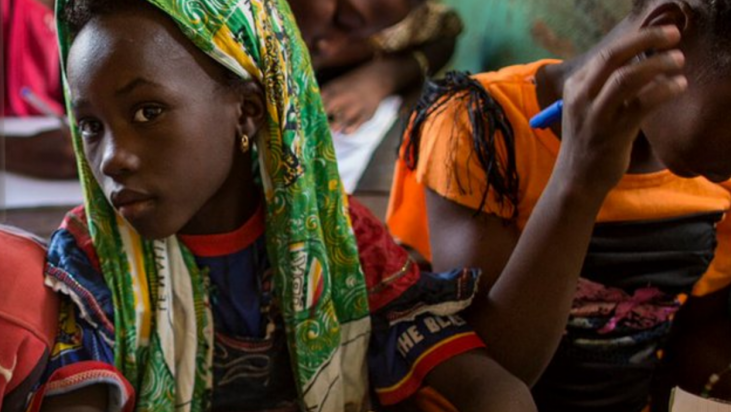The 2018 ECOSOC Forum on Financing for Development follow-up (FfD Forum) is starting today in New York, and will run until 26 April. Just today, the Global Alliance for Tax Justice will champion #TaxJustice in two events:
At 1:15, Permanent Missions of Ecuador and Norway at the United Nations are co-hosting a side-event titled “Gender Equality and Women’s Empowerment as Key Crosscutting Themes in the Addis Ababa Action Agenda”.
Lidy Nacpil, member of Global Alliance for Tax Justice’s Coordination Committee, will present concluding remarks, representing GATJ’s Tax and Fiscal Justice Asia regional network member.
Paragraph 6 of the Addis Ababa Action Agenda, introduces the concept note, emphasizes that achieving gender equality, women’s empowerment and the realization of women’s human rights are essential for achieving sustained economic growth, inclusive and equitable economic growth, and sustainable development. It also emphasizes on the need to ensure women ́s equal rights, access and opportunities for participation and leadership in the economy.
The side event aims to address the economic and fiscal factors that affect gender inequality, as well as the commitments of the Addis Ababa Action Agenda and the policies that can be put in place to reach sustained and inclusive economic growth, with gender equality and women’s empowerment as crosscutting themes.
Panelists will bring attention to the challenges faced by women, including these key points:
- Gender inequality persists in access to finance, technology, public services, decent work, participation in policy-making processes and many other areas. These inequalities threaten the implementation of the Sustainable Development Goals and other global commitments.
- In fiscal policy, which is an essential tool to steer inclusive and sustained economic growth processes, the mobilization of national public resources through fiscal collection is becoming increasingly difficult in a context characterized by tax evasion, illicit financial flows and a lack of gender-responsive budgeting. This has a negative effect on Governments efforts to increase levels of social protection to realize women’s human rights, end violence and achieve gender equality.
- Weak regulation of overseas investment and development projects exposes women to risks of poverty and exploitation even when new paid work options are created.
- The average time devoted to unpaid provision of care and domestic work is more than triple for women than for men. The time spent on household chores is the cause of a high proportion of the gender gap in unpaid work.
- As the result of existing employment, wage, and tax policy inequities, women shoulder more unpaid work responsibilities and experience more poverty than men.
- Taxes are a primary source of financing for public services to reduce unpaid care and domestic work, and to assist victims of violence, which are particularly relevant for women.
- Gender-responsive budgeting can strengthen coherence between government budgets and gender equality objectives, by identifying key gender equality objectives and allocating appropriate resources, through strengthened tax systems with gender equality in mind.
This event is by invitation only. You can contact the Ecuador Mission for more information.
At 6:30, The Global Alliance for Tax Justice together with its partners Action Aid, Eurodad, Tax Justcie Network Africa, Society for International Development, Global Policy Forum, the Financial Transparency Coalition and the NGO committee on FfD, facilitates a side-event titled “Tackling Illicit Financial Flows: Time to drop false solutions and embrace real change”.
It is organized under the umbrella of the Civil Society Financing for Development Group, including the Women’s Working Group on FfD.
“Illicit financial flows (IFF), with legalized tax avoidance as its major component, is the fundamental constraint to be addressed to ensure the fiscal space that is necessary to advance the 2030 Agenda the facilitators explain. Major public scandals brought to light by the many recent leaks, the Panama Papers and Paradise Papers, exposed how many wealthy individuals and multinational companies are involved in illicit flows, and how a number of countries, including some major economies, are providing systemically institutionalized facilitation of IFF.
No adequate measures are being undertaken in practical ways to combat IFF. On the contrary, whereas the global agreement reached in the SDG process clearly covers tax avoidance by multinational companies, efforts seem underway to redefine IFF to exclude tax avoidance from issues and measures to address IFF.
Also on the point of tax cooperation, international agreements have not been followed up on. The Addis Ababa Action Agenda is unequivocal in its “stress that efforts in international tax cooperation should be universal in approach and scope and should fully take into account the different needs and capacities of all countries”. Despite this, there is still no consensus on establishing an intergovernmental tax commission under the auspices of the United Nations”.
This side-event aims to:
- Explore policy measures which will narrow the implicit and explicit differences in definition and measurement of IFFs which undermine efforts to curtail IFF;
- Share experiences of how the national and continental level efforts in the Global South to enhance DRM are being impacted by IFF and discuss the main obstacles to progress, with emphasis on the role of secrecy jurisdictions and tax havens;
- Problematize recent international initiatives and the dominance of certain institutions, and map out concrete pathways for the establishment UN inter-governmental tax commission.
You can find the updated list of speakers on our webpage.
Follow the debate through #FfDForum and of course #TaxJustice!
